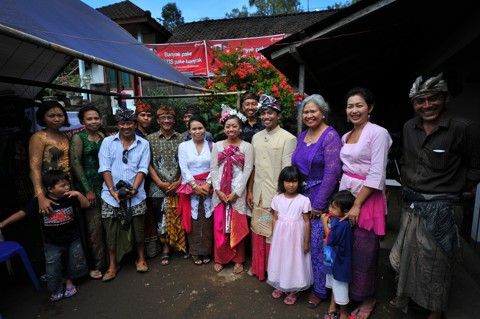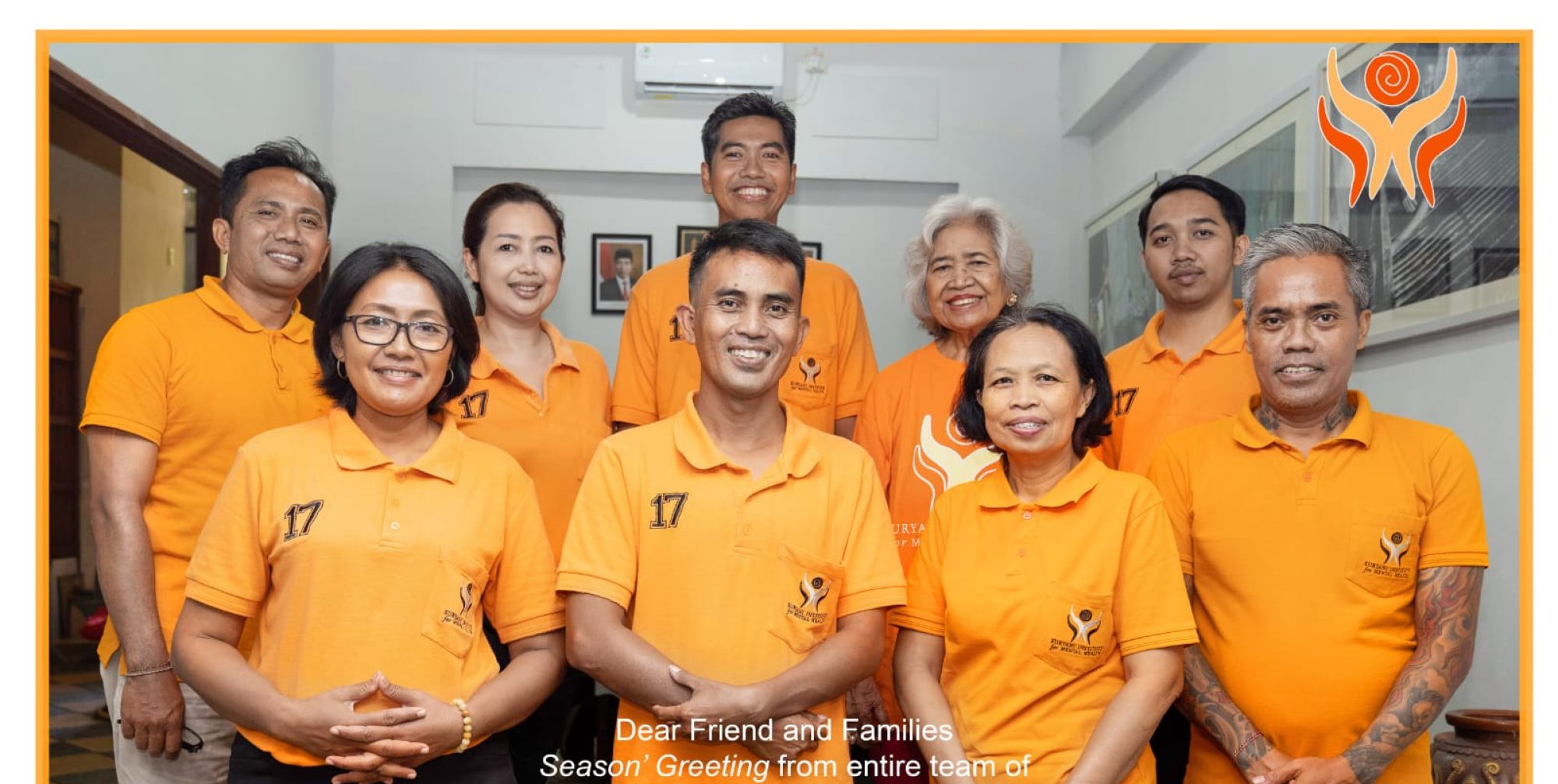Besides his work as Layanan Hidup Bahagia’s volunteer, Komang Adi set his time to settle with his beloved partner Indra last Friday (2/4) in Karangasem. Marriage it self is an important aspect of Balinese society and governed strictly by the custom and religious rules. Marriage is important for Balinese since only married man has the full right and obligation to the society. Based on Balinese tradition the purpose of marriage is to give freedom and to set limit to the romance and sexual activities in the society which greatly affect the harmony of the society. As the member of Suryani Institute volunteer which most of his time was for the mentally ill patients, from this time Adi has to manage his time more wise for his new family.
 After the wedding, the new bride leaves her old ties behind and formally becomes a member of the husband’s kin group and caste, serving the new family’s gods. The couple resides in the house of the husband’s parents for the first few years; relations with her own family may be severed.
After the wedding, the new bride leaves her old ties behind and formally becomes a member of the husband’s kin group and caste, serving the new family’s gods. The couple resides in the house of the husband’s parents for the first few years; relations with her own family may be severed.
The wife owns all her clothes, jewelry, household utensils, pigs, and chickens, and often has her own income from the sale of market goods. Inheritance is invariably passed along the male line; the man owns the house, the rice fields, the cattle, and his tools, and is in charge of handling the money.
Polygamy amongst the aristocracy was once widespread but is now quite rare. At one time the wife of a prince could hold varying levels of status in a ‘puri’, depending upon her caste and whether she ranked as first, second, third, or fourth wife. The prince usually did not even appear at his wedding ceremony with a low-caste bride; she was ceremonially married to his ‘kris’, or a tree.


Comments are closed.